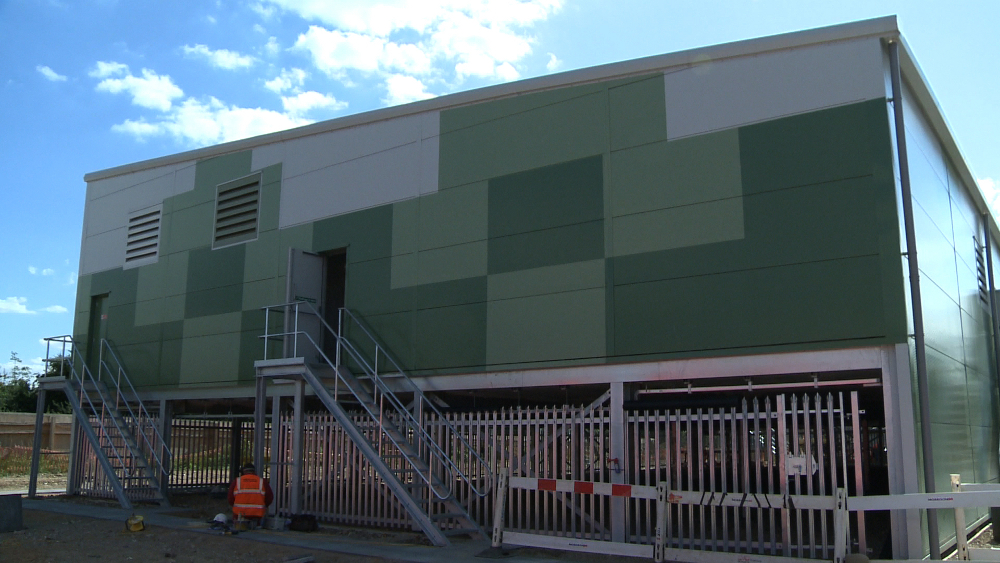
Image: Smart Power report, National Infrastructure Commission.
As the long-awaited call for evidence (CfE) on the future of the UK’s smart power policy gets ever closer, anticipation is continuing to build on the subject of smart grids, energy storage and flexibility.
We know that the consultation was ready in May, as confirmed by the Department of Business, Energy and Industrial Strategy’s (BEIS) head of smart energy Beth Chaudhary, but with Brexit and the ensuing onslaught of central government changes, almost all policy in this area has ground to a standstill.
This looks to be coming to an end with BEIS finally unveiling some of its proposals for the phase-out of coal and future clean energy investment. However the CfE, consultation, “light green paper” or whatever government wants to call it is still conspicuous by its absence.
After Chaudhary revealed last week that the document is due “in the next couple of weeks”, and with civil servants readily trailing it for months at various industry events, we have a fairly good idea of what the department is seeking views on, and what companies should be preparing to address.
1. Removing barriers to storage and demand side response
This looks as though it will make up the bulk of the document, with BEIS seeking to clear up the regulatory framework around these areas. This will include measures to finally assign storage a definition within legislation as Rachel Cooper, head of energy storage, recently explained at an event hosted by the Solar Trade Association (STA).
“We're thinking about how storage fits within the framework and that matters for planning, for how it’s treated in relation to final consumption levies and it matters for how government is able to refer to storage in the future as new policies are designed. We want to get that definition of storage right and we want to get the licensing framework right around it as well,” she said.
This section will also seek views on how to resolve the issue of ‘double-charging’, where storage is currently subject to paying environmental levies twice; once when energy is stored and again when it is discharged.
BEIS will seek views on how this impacts on operating costs of storage projects and whether it’s right that currently supply volumes that pass through storage projects are subject to charges associated with the renewables obligation, feed-in tariffs, Contract for Difference auctions and the Climate Change Levy.
Cooper added: “We're looking practically at what the options are for exempting storage from those. We also need to think about the practicalities of how the people administering the levies could actually exempt storage supply.”
It will also seek to clarify the role of aggregators and the extent to which they can sell their services to the system operator and access wholesale and balancing markets.
Planning rules will also be addressed, considering whether or not the current 50MW threshold is appropriate for national planning, as will issues around ownership. It seems there is a debate to be had about how network operators can interact with storage. BEIS appears to be against these organisations owning their own systems, but will be looking at the services they can procure from storage providers once the technology gets its own definition.
Then there comes the issues around ensuring connections are granted at the right time, and how these applications are progressed.
Finally, the document will seek views on how storage is treated in relation to its use of system charges and in relation to paying for the costs of having the network in place. Ofgem’s ongoing review into embedded benefits will no doubt play into this and so responses on this issue will likely feed into BEIS’ final policy decisions in this area.

Image: S&C Electric.
2. Improving price signals to improve flexibility
BEIS will be looking at how it can encourage and reward consumers who offer up their flexibility, suggesting this could be achieved through half hourly settlements and the right framework to enable consumers to benefit through this system.
This will also look at supporting smart tariffs, service and appliances – smart meters will be featured – as well as ensuring consumers are protected from any changes in the market.
3. Catalysing innovation
The absent former chancellor George Osborne announced in his final Budget in the job that £50 million of funding would be made available to develop new innovations in smart energy. The CfE will build on this announcement by seeking views on how best to deploy this cash, with options already floated including large scale storage projects or a demonstration plant utilising a number of different storage technologies working in unison.
As Chaudhary said last week: “This government is still very much committed to this key area of growth because it addresses a lot of the government's objectives.”
She added that a further announcement on innovation would be included in the upcoming Autumn Statement, which could see more cash thrown at smart power R&D.
4. Assessing the roles and responsibilities of those within the energy market
This will look at the existing institutional and market frameworks in the UK power system and what's going to be required in the future. BEIS alongside other official bodies has been fairly upfront in the past about the changing nature of DNOs as the system becomes more decentralised (could they become DSOs?) and what could happen to the role of National Grid.
It will no doubt be seeking views in this area, although the scope of this consultation is likely to fall into the more open green paper format of the document over the white paper-ish proposals expected in the document.
5. Developing the government’s evidence base
The lack of up to date knowledge and awareness of the rapidly evolving smart power sector has long frustrated its development, both in regulatory and deployment terms. BEIS will use this opportunity to make sure it has the right information and modelling capability to ensure it can keep abreast of the market’s future to assess what is needed going forward.
With all of these aspects covered in the upcoming document, the hope for many – both in government and industry – will be that this important sector will finally get the regulatory framework it needs to take off in the UK.
Support for this end goal appears to be strong within government, with BEIS’ view summed up nicely by Cooper at the STA event.
“We'd really like to have views…on whether we're hitting the right questions on how we can transition smoothly to a smart energy system. We need to understand how we can support and design an energy system which will help us deliver secure, affordable and clean energy in the future.”
Since publication, BEIS and Ofgem have jointly launched the 'Smart, flexible energy system' call for evidence, which can be found here.

